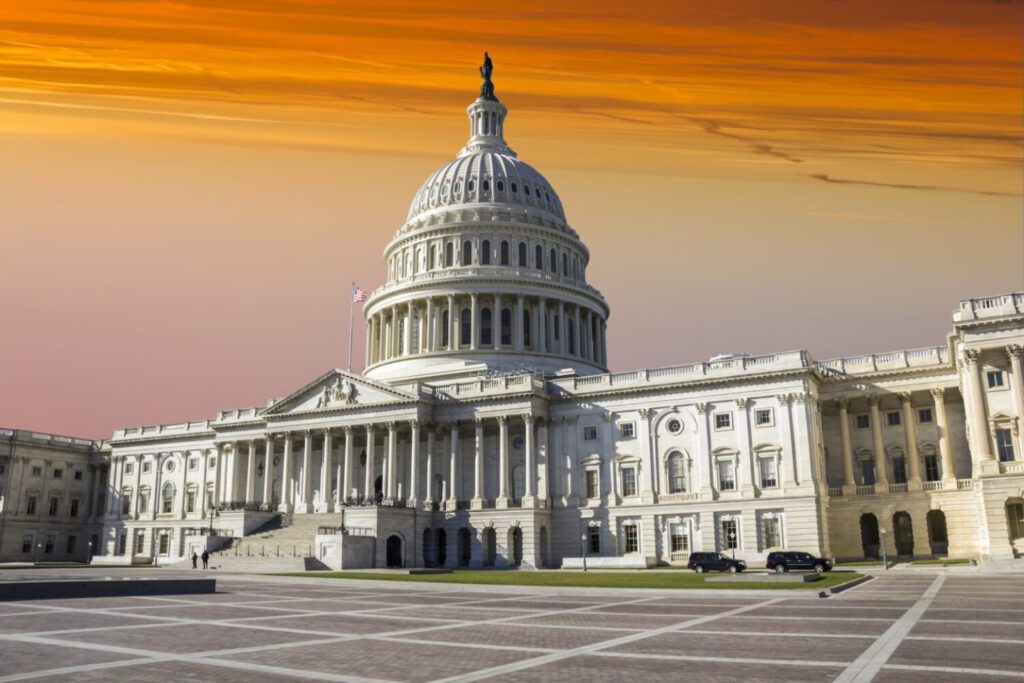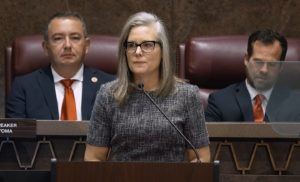How to Talk to Your Children or Students about Politics
“It’s never been this bad!” How many times have you seen, heard, or even thought this while scrolling through your daily news feed or reading that latest political rant from your uncle on…

“It’s never been this bad!” How many times have you seen, heard, or even thought this while scrolling through your daily news feed or reading that latest political rant from your uncle on Facebook? If you have ever thought It’s never been this bad!, you wouldn’t be alone.
Even if you are a casual follower of politics, it looks like the whole world has divided up between team red and team blue. Lines have been drawn, trenches dug, verbal artillery shells lined up. Books talk about the ever-growing chasm between red and blue, urban and rural, middle America and Coastal America. It’s easy to be drawn into the swirling maelstrom of political diatribes.
What do you tell your children or students about this political food fight that seems to have taken over every aspect of modern culture? As Christians, we serve as ambassadors to the world. This diplomatic role is lived out in my teaching Government, History, and Economics for the last 25 years. I’d like to share a few things with you, from the field, that you can share with your kids.
First I’d like to take issue with the idea that “it’s never been this bad.” When my kids say this sort of thing I often respond with my best Dad look (peering over my glasses usually) while slowly retorting, “Reeeealllly?” At this point my kids know what’s coming. Here comes Dad with a dozen questions. By the way, it’s always better to ask kids questions. Let them puzzle it out.
- What about people who lived through the stagflation of the 1970’s along with the Arab oil embargo, gas rationing, the Iranian embassy hostage crisis, Watergate, the Russian invasion of Afghanistan? The 70’s seemed to be a rough decade, huh?
- How about 1968, a year that included the Tet Offensive, the assasination of Martin Luther King Jr. and presidential candidate Robert F. Kennedy, the riotous and chaotic Democratic National Convention, and dozens of urban riots all over the country. Yeah, that was a tough year.
- How about 1941? There are fewer and fewer people around who remember the horrors of World War II when no American was beyond the reach of a global conflict fought in two hemispheres. That was bad, right?
- How about the Great Depression with unemployment peaking at 24.9%? My grandfather loved to tell me stories about Depression era life or no air conditioning or no indoor plumbing.
Should I go on? Jim Crow Legislation? World War I? The Spanish Flu, The American Civil War? “Yep, never been worse.” You get the point.
Modern minds fall prey to the tyranny of the present. Social media and modern technology has not helped us in that respect. Glowing screens demand our attention and the best way to get our attention is with carnage and outrage. Context does not sell and nuance doesn’t get clicks. However, a little historical context quickly dispels the notion that it’s never been this bad.
The next thing I want my children to know is that politics is a means and not an end in itself. Politics is simply a process. It’s the process we go through to determine what the government should be doing. It involves conversations, compromise, and frankly hard work. Sometimes it even involves conflict, but politics should never define us.
The best way to articulate this concept to my students, and to my own children, is to talk to them about ‘identity’. Our current political crisis is one of identity. Basically, too many people find their identities in political parties, political ideologies, and political fights. We have seen the ever growing rise of the “none’s” in religious affiliation and the rise of secularism. This is why I constantly have to remind my own children and students that they are not primarily Democrats or Republicans, Liberal or Conservative, Red or Blue. They are, first and foremost, children of God.
In fact, Scripture describes believers as loved and adopted by God. I remind my students that they did nothing to be loved and could do nothing to be loved more. The only response to this should be gratitude. It’s difficult to be hateful with others when you are grateful. It’s difficult to be unkind when you are thankful. Though adopted by God, we are also ambassadors to the world. We don’t owe allegiance to any party, potentate, or president on earth. Our job is to share our faith and values while we are here.
How do you speak to the Kingdom of Man as an ambassador? By living as an adopted heir. Love God and your neighbor. Defend and care for the widow, the orphan, the poor, and the sojourner. Work for the benefit of all. Then, when the Kingdom of Man operates in opposition to the King of Kings, it’s your job to say so. That is Identity as it should be understood by Christians of all ages.



